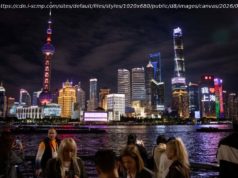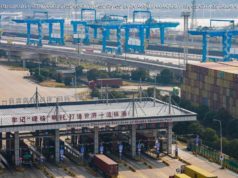China’s embassy in London said it was firmly opposed to mentions of Xinjiang, Hong Kong and Taiwan in the G-7’s final communique.
NATO Secretary General Jens Stoltenberg on Monday said the military alliance plans to toughen its stance toward China, while recognizing the need to work with Beijing on some global issues. Speaking as he arrived in Brussels, Belgium, for a one-day NATO summit, the organization’s chief said: « The message is that, of course, there are opportunities in our relationship with China. For instance, on arms control and climate change we need to talk to China. At the same time, what we have seen over now several years is a significant military buildup by China, investing heavily in new military capabilities, including nuclear capabilities and also more advanced weapon systems. » « We see coercive behavior, for instance in the South China Sea. And we also know that China does not share our values, » Stoltenberg continued. « China is coming closer to us. We see them in cyberspace, we see China in Africa [and] in the Arctic, but we also see China investing heavily in our own critical infrastructure and try to control it, » he said, referring to ports and telecom networks. « We need to respond together as an alliance, » Stoltenberg said. China’s embassy in London was not immediately available to comment when contacted by CNBC on Monday. NATO’s Stoltenberg has described the summit as a « pivotal moment » for the alliance, with the group aiming to chart a course for the transatlantic relationship over the next decade and beyond. His comments about China came shortly after the G-7 issued a joint statement calling on Beijing « to respect human rights and fundamental freedoms, especially in relation to Xinjiang and those rights, freedoms and high degree of autonomy for Hong Kong enshrined in the Sino-British Joint Declaration and the Basic Law.
Home
United States
USA — China NATO to respond to China's 'coercive behavior,' says Beijing does not share...






